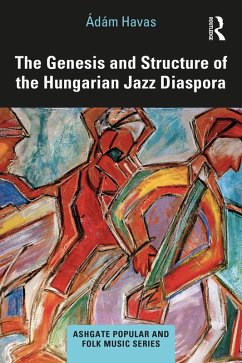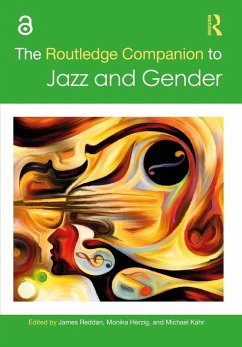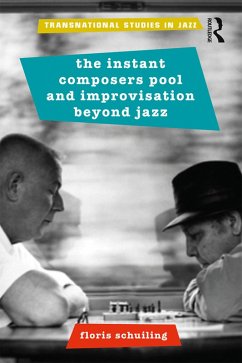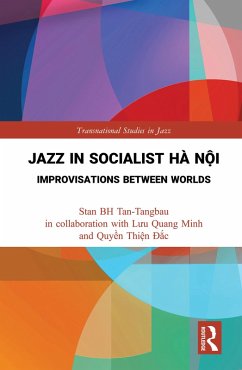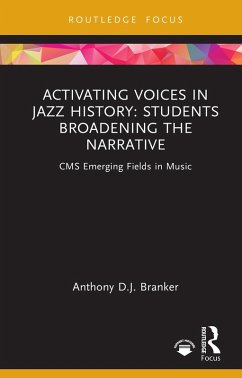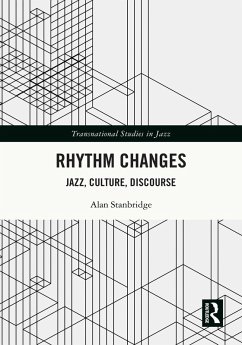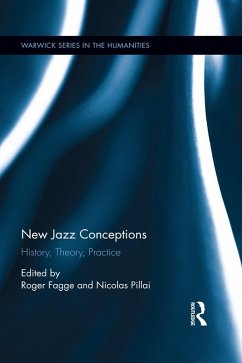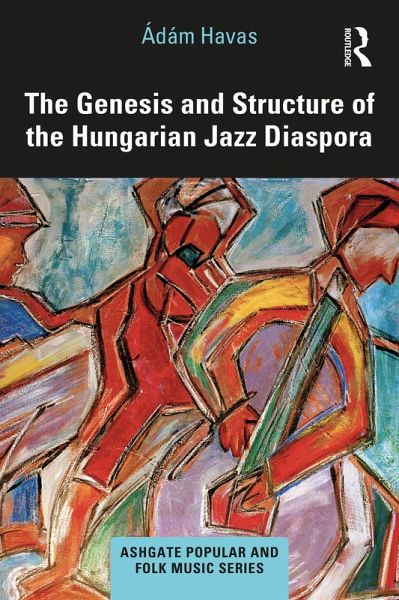
The Genesis and Structure of the Hungarian Jazz Diaspora (eBook, ePUB)
Versandkostenfrei!
Sofort per Download lieferbar
39,95 €
inkl. MwSt.
Weitere Ausgaben:

PAYBACK Punkte
20 °P sammeln!
In Hungary, jazz was at the forefront of heated debates sparked by the racialised tensions between national music traditions and newly emerging forms of popular culture that challenged the prevailing status quo within the cultural hierarchies of different historical eras. Drawing on an extensive, four-year field research project, including ethnographic observations and 29 in-depth interviews, this book is the first to explore the hidden diasporic narrative(s) of Hungarian jazz through the system of historically formed distinctions linked to the social practices of assimilated Jews and Romani m...
In Hungary, jazz was at the forefront of heated debates sparked by the racialised tensions between national music traditions and newly emerging forms of popular culture that challenged the prevailing status quo within the cultural hierarchies of different historical eras. Drawing on an extensive, four-year field research project, including ethnographic observations and 29 in-depth interviews, this book is the first to explore the hidden diasporic narrative(s) of Hungarian jazz through the system of historically formed distinctions linked to the social practices of assimilated Jews and Romani musicians. The chapters illustrate how different concepts of authenticity and conflicting definitions of jazz as the "sound of Western modernity" have resulted in a unique hierarchical setting. The book's account of the fundamental opposition between US-centric mainstream jazz (bebop) and Bartók-inspired free jazz camps not only reveals the extent to which traditionalism and modernism were linked to class- and race-based cultural distinctions, but offers critical insights about the social logic of Hungary's geocultural positioning in the 'twilight zone' between East and West to use the words of Maria Todorova. Following a historical overview that incorporates comparisons with other Central European jazz cultures, the book offers a rigorous analysis of how the transition from playing 'caféhouse music' to bebop became a significant element in the status claims of Hungary's 'significant others', i.e. Romani musicians. By combining the innovative application of Pierre Bourdieu's cultural sociology with popular music studies and postcolonial scholarship, this work offers a forceful demonstration of the manifold connections of this particular jazz scene to global networks of cultural production, which also continue to shape it.
Dieser Download kann aus rechtlichen Gründen nur mit Rechnungsadresse in A, B, BG, CY, CZ, D, DK, EW, E, FIN, F, GR, HR, H, IRL, I, LT, L, LR, M, NL, PL, P, R, S, SLO, SK ausgeliefert werden.




